Some of these characters, and their stories, can be helpful in raising awareness and in some cases acceptance of additional needs and disability.
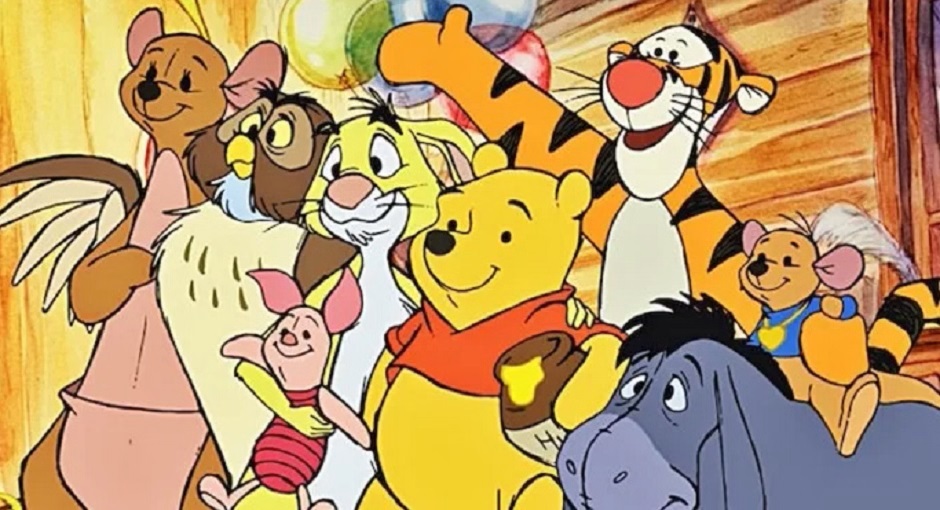 An image of Winnie-the-Pooh.
An image of Winnie-the-Pooh.
Some of the most widely loved and memorable animated movies ever made have been created and distributed by Disney and Pixar, now part of the same media company. Many of these movie classics include characters who have, or may possibly have, additional/special needs or disabilities of some kind.
Some of these characters, and their stories, can be helpful in raising awareness and in some cases acceptance of additional needs and disability. For children and young people with additional needs or disabilities, some of these characters (but perhaps not all, as you’ll see!) can be used to show them that they are represented in these movies, that there are characters that are like them.
Each of these characters can be good discussion starters, but do be aware that these are animated characters, they are not real, and in some cases we can only speculate about the additional needs or disabilities that they may have been created with. While we should never ‘diagnose’ a child or young person unless we are medically qualified to do so and are engaged in this process professionally, we can, perhaps, speculate more regarding animated characters.
Some films/series are seemingly full of characters with additional needs and disabilities, step forward ‘Toy Story’, ‘How To Train Your Dragon’, ‘Finding Nemo/Finding Dory’ and ‘Winnie-the-Pooh’, for example, while others still have a bit of representation going on. I will have missed loads, and some of those suggested to me were left out as they aren’t ‘classic’ Disney or Pixar (so, ruling out the Marvel Cinematic Universe and the Star Wars film series on this list, for example, maybe something for another day), but there are still plenty for us to explore.
If I’ve missed any obvious characters that simply must be in this list (quite likely), or have grossly misrepresented a character (entirely possible), do contact me and I’ll try to add them in/amend their details. In the meantime, here they are, in film alphabetical order:
Year released: 2009
Characters who have/may have additional needs or disabilities:
Tiny Tim – has a limp and uses a crutch, is in poor health, both possibly due to rickets or polio.
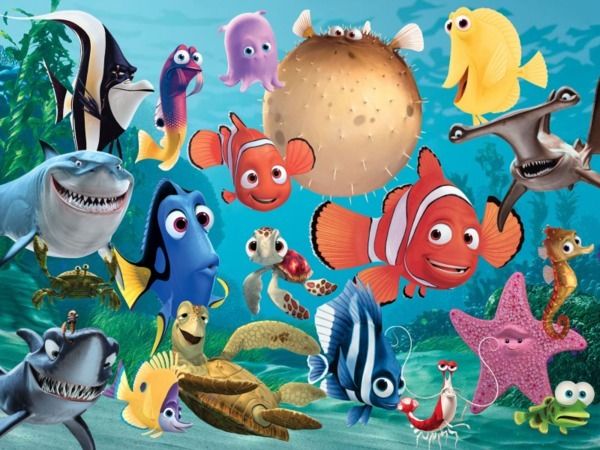 An image
An image[photo_footer] An image of Finding Nemo [/photo_footer] Year(s) released: 2003/2016
Characters who have/may have additional needs or disabilities:
Nemo – he has a deformed fin on the right side, which is called his ‘lucky fin’.
Dory – she has short term memory loss
Pearl – the little pink octopus in Finding Nemo who has one tentacle that is shorter
Sheldon – the young seahorse with a water allergy
Jacques – the shrimp in the dentist’s fish tank in Finding Nemo who may have OCD
Destiny – the shark in Finding Dory with visual impairment
Also various other characters in the dentist’s fish tank
Year released: 2019
Characters who have/may have additional needs or disabilities:
The boy – based on Alex, the Autistic son of the writer/director/producer, Bobby Rubio
Here’s a separate blog I wrote about ‘Float’ when it was released, including an endorsement from Bobby Rubio himself.
Year(s) released: 2013/2019
Characters who have/may have additional needs or disabilities:
Elsa – various theories suggesting she may have depression, social anxiety disorder/social phobia, and/or Obsessive Compulsive Disorder
How To Train Your Dragon (series of films)
OK, I know it’s Dreamworks, but it’s too good to miss out so I’ve made an exception!
Year(s) released: 2010-2019
Characters who have/may have additional needs or disabilities:
Hiccup – has a prosthetic leg after losing the lower half of his leg in the battle against Red Death
Toothless – has a prosthetic tail
Various other characters with prosthetic limbs including ‘Gobber the Belch’, who also makes prosthetics for others.
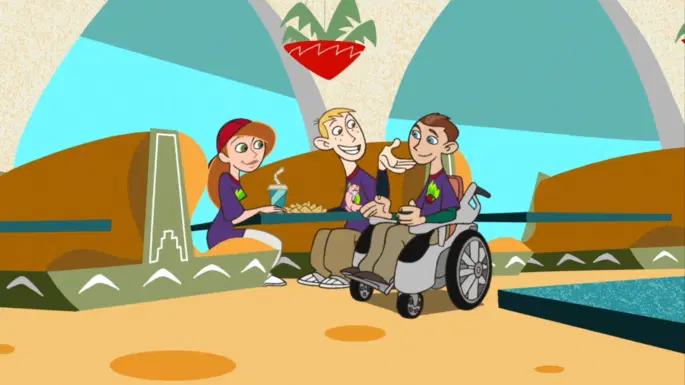
[photo_footer] An image of Kim Possible. [/photo_footer] Year released: 2019
Characters who have/may have additional needs or disabilities:
Felix Renton – is paralysed, uses a wheelchair in this Disney series.
Year(s) released: 2002-2006
Characters who have/may have additional needs or disabilities:
Lilo – there is a suggestion that she is Autistic, as she stims, is socially isolated from her peers, and she has unusual and obsessive hobbies, but there is also an argument that she could be suffering from PTSD due to the loss of her parents.
Stitch – However, if Lilo is Autistic, then Stitch makes an awesome Autism Assistance Dog!
Year released: 2016
Characters who have/may have additional needs or disabilities:
Hei Hei the rooster – Possible Dyspraxia and Intellectual/Learning Disability
Tamatoa the crab – Possible narcissistic personality disorder and body dysmorphia
Some people have speculated about Moana herself, but although she breaks the mould and behaves differently to the expectations of her father etc. she isn’t disabled.
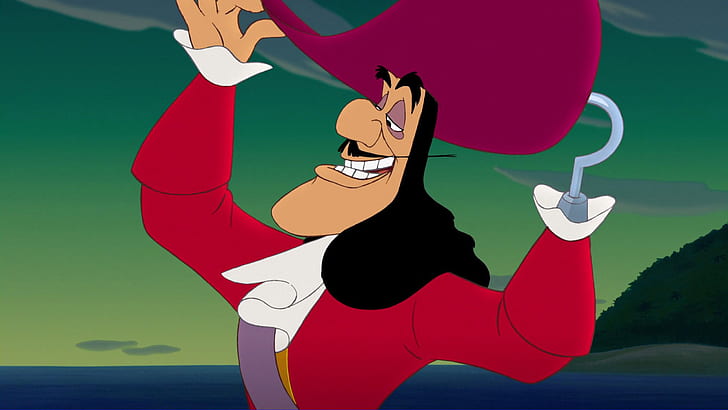
[photo_footer] An image of Peter Pan.[/photo_footer] Year released: 1953
Characters who have/may have additional needs or disabilities:
Peter Pan – gave his name to a mental health condition, an inability to believe they are older
Hook – is an amputee.
Year released: 1937
Characters who have/may have additional needs or disabilities:
The seven dwarfs – have dwarfism
Dopey – also has mutism.
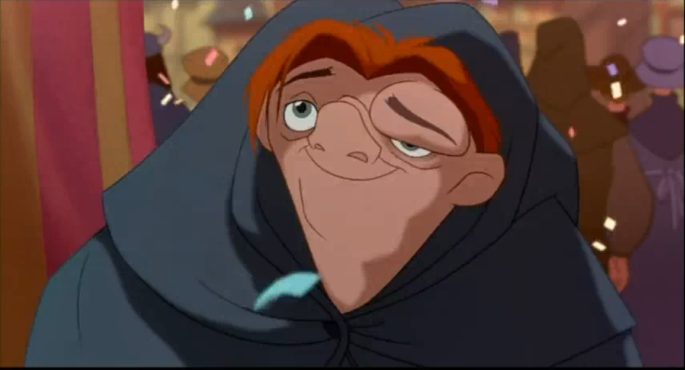
[photo_footer]An image of The Hunchback Of Notre Dame [/photo_footer] Year released: 1996
Characters who have/may have additional needs or disabilities:
Quasimodo – has a deformed back from birth, and has acquired deafness
Years released: 1995-2019
Characters who have/may have additional needs or disabilities:
Buzz Lightyear – Spends some time as an amputee
Wheezy (the Penguin) – has lost his ‘squeaker’ and has asthma
The various ‘mutant’ toys in Sid’s bedroom and yard
In Toy Story 4 there is a child with a cochlear implant who is deaf or hard of hearing
Other suggestions include Forky in Toy Story 4 who is made up of broken items.
Year(s) released: 1977-2018
Characters who have/may have additional needs or disabilities:
There has been much speculation and debate that all of the main characters in the Winnie-the-Pooh series have a mental health condition disability/diversity of some kind, and while this may be stretching things a little, there are three characters in particular that are clearer:
Eeyore – It seems likely that Eeyore journeys with depression
Piglet – Seems to experience generalised anxiety disorder
Tigger – Could well have Attention Deficit Hyperactivity Disorder (ADHD)
Possible, but maybe less likely (?), include Owl (Dyslexia, he struggles with spelling), Rabbit (Obsessive Compulsive Disorder, everything in the garden must be neat and tidy), etc.
Year(s) released: 2012-2018
Characters who have/may have additional needs or disabilities:
Vanellope von Schweetz – has a ‘glitch’, fictional ‘pixlexia’ “a code-reading disability”
Aladdin – imposter syndrome
Ariel – the mermaid in ‘The Little Mermaid’, mutism, mobility disability when she gets her legs back and struggles to walk?
Dumbo – different, rather than disabled
Flash – the sloth in ‘Zootopia’ – Bunny gets annoyed with him for being slow
Goofy – ADHD?
Kaa – the python in ‘The Jungle Book’, has a sinus problem
King Fergus – Merida’s Dad in ‘Brave’, has a prosthetic leg
Lewis – in ‘Meet The Robinsons’, is an obsessive inventor and social detached, Autism?
Rapunzel – PTSD? Autism? (see also Lilo And Stitch, above)
Russell – the boy in UP, ADHD?
I hope you’ve found this list interesting and helpful; maybe there were more Disney Pixar characters with additional needs or disabilities than you thought (and I’m sure this list isn’t exhaustive!) But some of those that are there provide us with some useful examples of characters that the children and young people we journey with can in some way connect with (although hopefully not Tamatoa, or Hook!)
Let me know if you find some more to add to this list!
Just keep swimming.
Mark Arnold, Director of Additional Needs Ministry at Urban Saints. Arnold blogs at The Additional Needs Blogfather. This article was re-published with permission.

Las opiniones vertidas por nuestros colaboradores se realizan a nivel personal, pudiendo coincidir o no con la postura de la dirección de Protestante Digital.
Si quieres comentar o